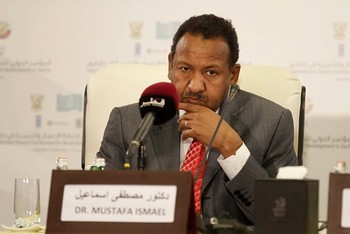Sudanese national land authority due to be established: minister
February 2, 2014 (KHARTOUM) – Sudan’s minister of investment, Mustafa Osman Ismail, has disclosed that a presidential decree to establish a national land authority would be issued soon, saying the new body will create special prosecution offices, courts and police to handle investment disputes.

Ismail stressed that the authority would have the power to allocate lands and offer compensations in land disputes, pointing to the important role played by the free trade zones in attracting resources and foreign exchange.
He affirmed government plans to establish six free trade zones during this year including one south of the city of Sawakin on the Red Sea coast and another one on the borders with Eritrea.
The third free trade area will be located in al-Galabat area on the borders with Ethiopia while the fourth will be built in the White Nile state on the borders with South Sudan in order to promote exports and investment with the neighboring country.
Ismail said the fifth zone will be built in West Darfur state capital of al-Geneina to promote trade with Chad and Central African Republic (CAR) and west African countries in general.
The sixth zone, according to Ismail, would be built in Argeen area west of Wadi Halfa town in the North state in order to encourage trade between Sudan and Egypt.
Last November, Ismail acknowledged that inflows of Foreign Direct Investments (FDI) in the country have declined since the secession of the oil-rich south in mid-2011 compared to the prior decade.
Despite great concessions the Sudanese government is offering to foreign investors, it has acknowledged some difficulties that are hampering its plans and programs.
Ismail cited a number of obstacles to investment, most importantly disputes over land ownership.
Last April, hundreds of Om Doum residents in Khartoum staged demonstrations, blockading the main street and setting tires on fire to express fury against what they say are government plans to give away part of their lands to a Saudi investor.
(ST)
